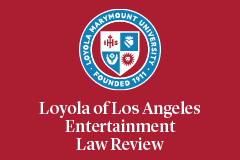Abstract
With online streaming rapidly replacing cable as the preferred method of media consumption for viewers, demand for online content is at an all-time high. Behind the scenes of the entertainment evolution is an open and neutral Internet that facilitates equal access to all online content. Until recently, the Federal Communications Commission (FCC) committed to preserving the neutral net by passing Net Neutrality regulations that prohibited Internet Service Providers (ISPs) from blocking, throttling, or prioritizing online content. That changed on December 14, 2017, when the FCC repealed Net Neutrality, lifting the restrictions that once prevented ISPs from differentially transmitting online content. ISPs are now free to create a hierarchy of content prioritization that favors the content they own and the content hosted by streaming services capable of paying the greatest prioritization fees. This hierarchy has the potential to reduce innovation in the online streaming service industry by creating financial barriers to entry that keep smaller streaming services out, limiting the diversity of content accessible by consumers.
This Note first describes the history of the Internet’s regulation that preceded Net Neutrality’s repeal, then explains the repeal’s potential consequences on online streaming services and consumers. Next, this Note offers solutions to Net Neutrality’s repeal. Finally, this Note concludes with a call to action, encouraging those who care about the future of a neutral Internet to not stand idle.
Recommended Citation
Olivia Young,
California, Are You There? It's the Entertainment Industry Calling and We Need Net Neutrality,
40 Loy. L.A. Ent. L. Rev. 247
(2020).
Available at: https://digitalcommons.lmu.edu/elr/vol40/iss2/3


